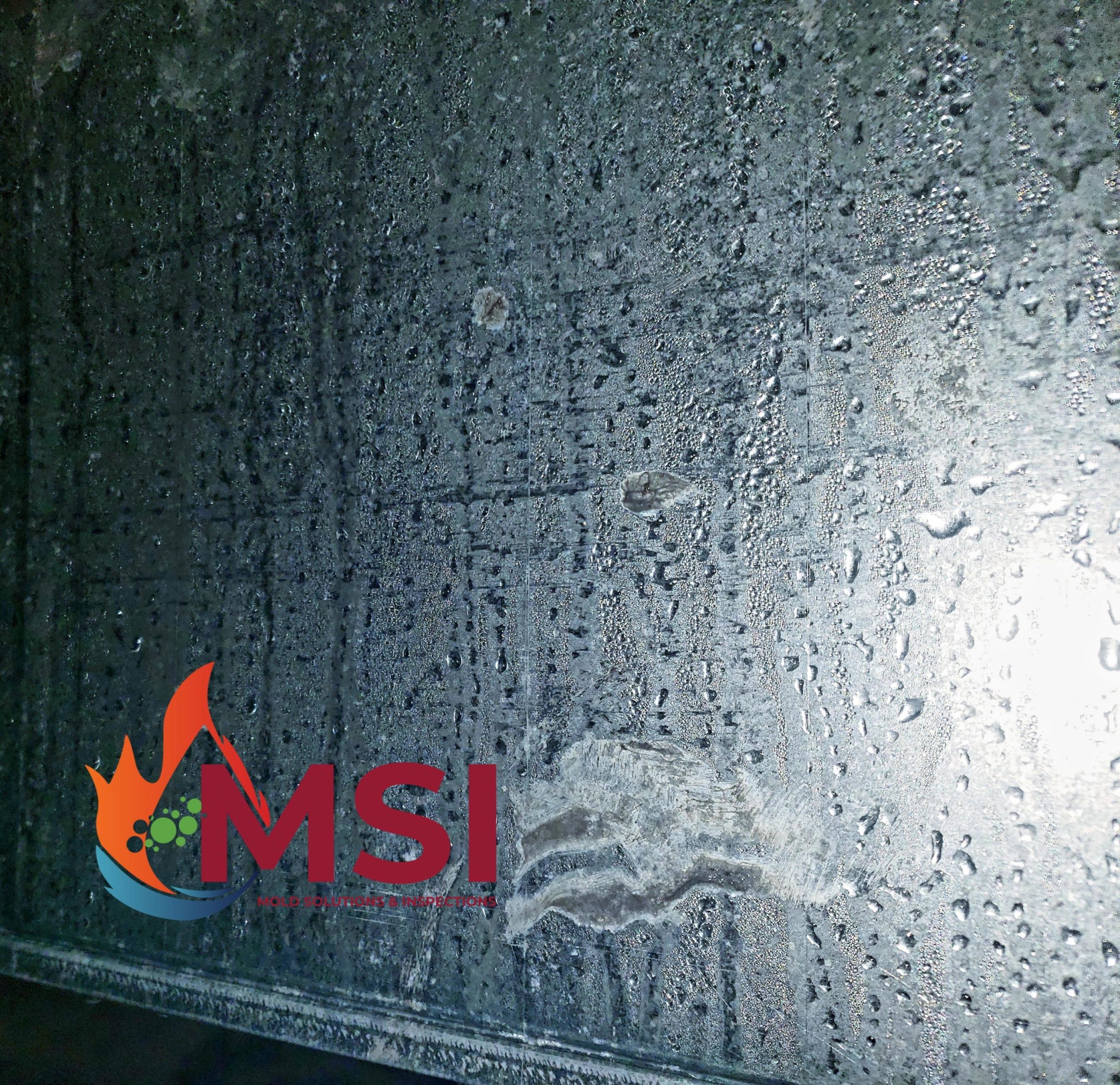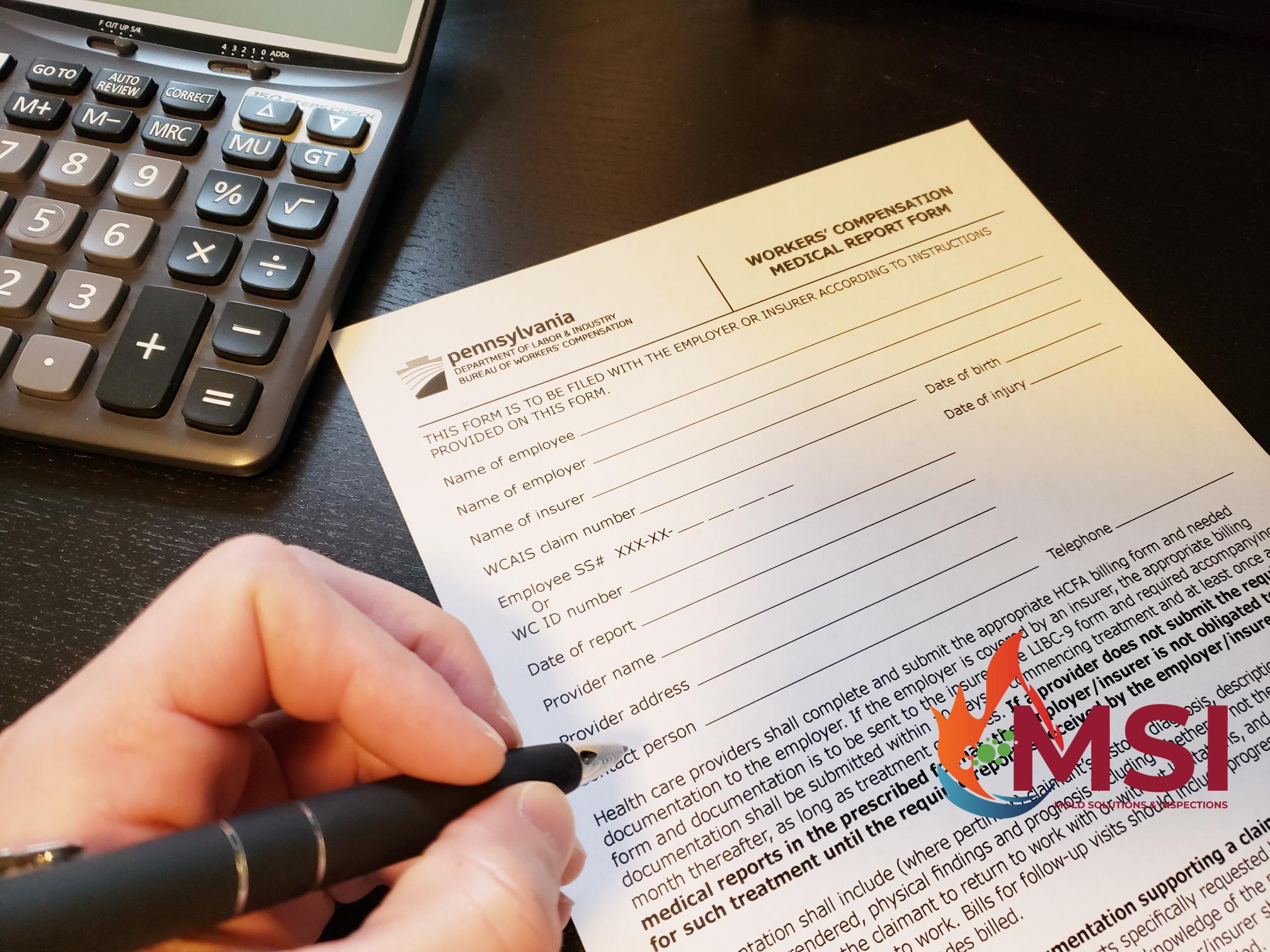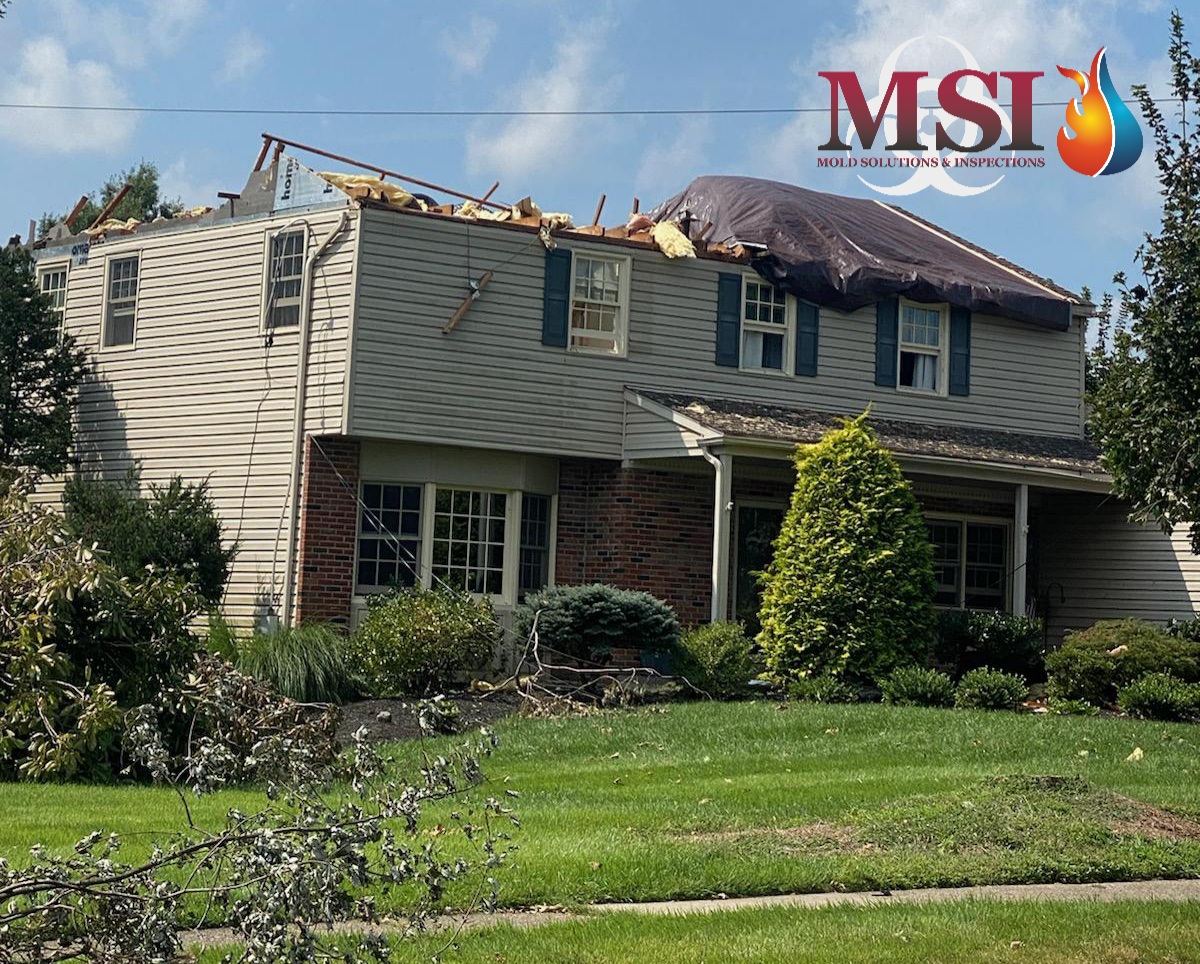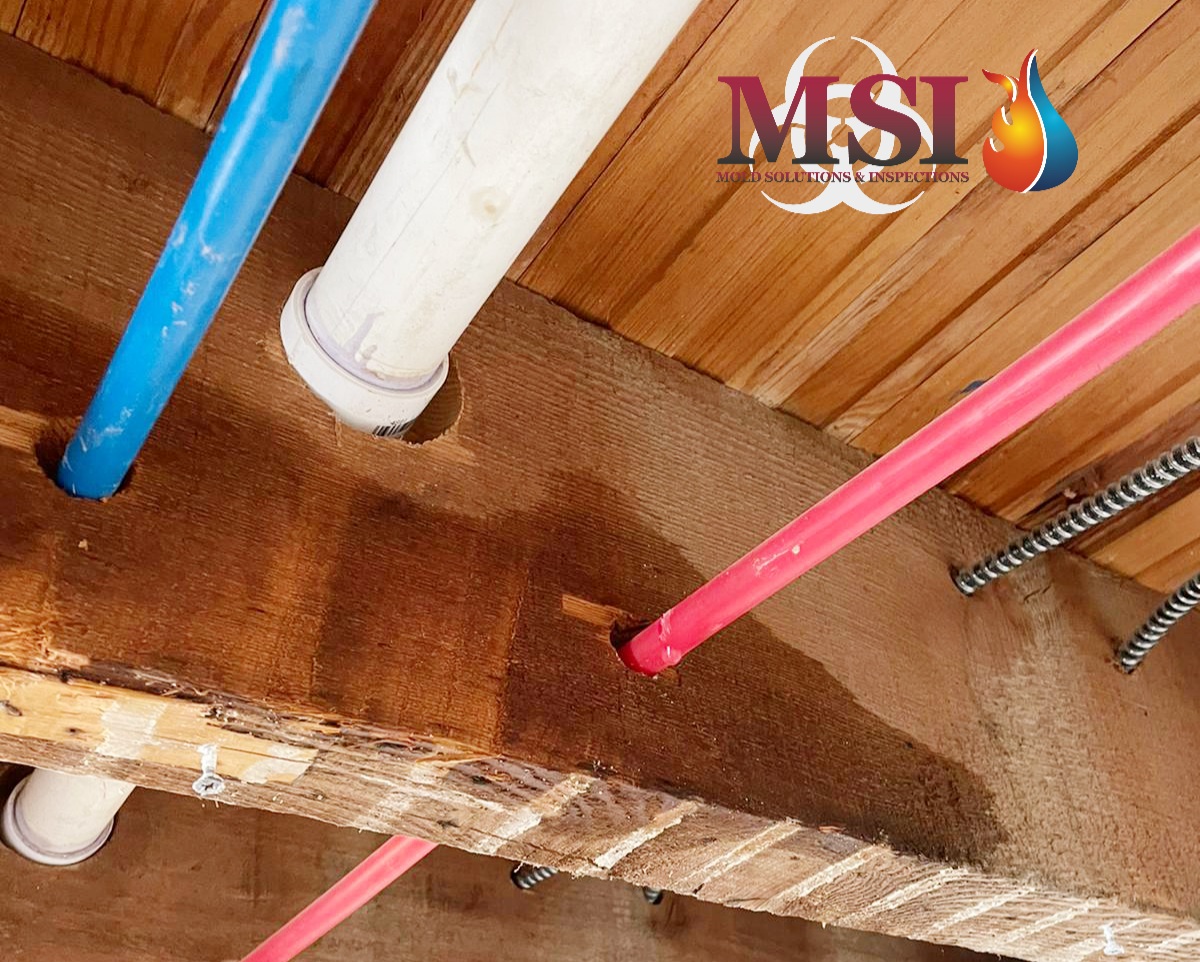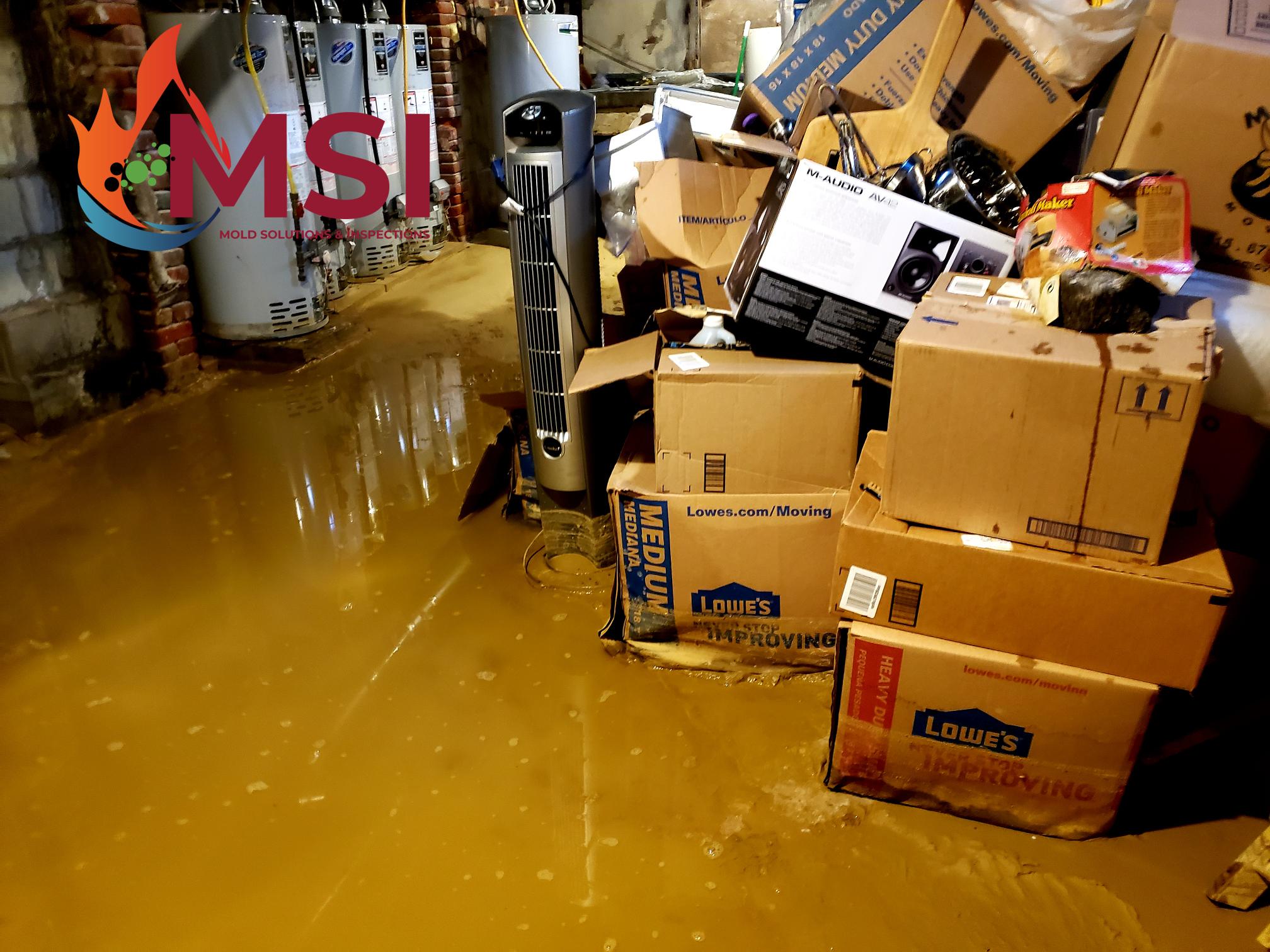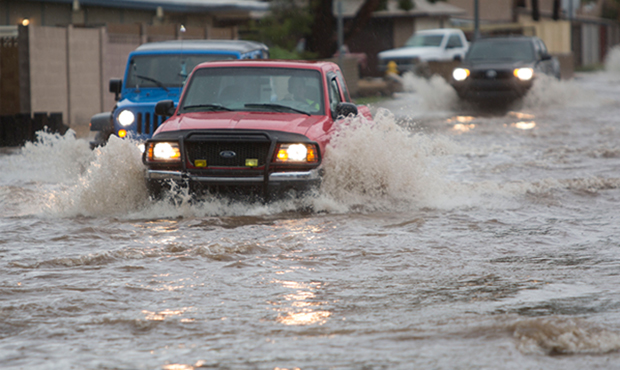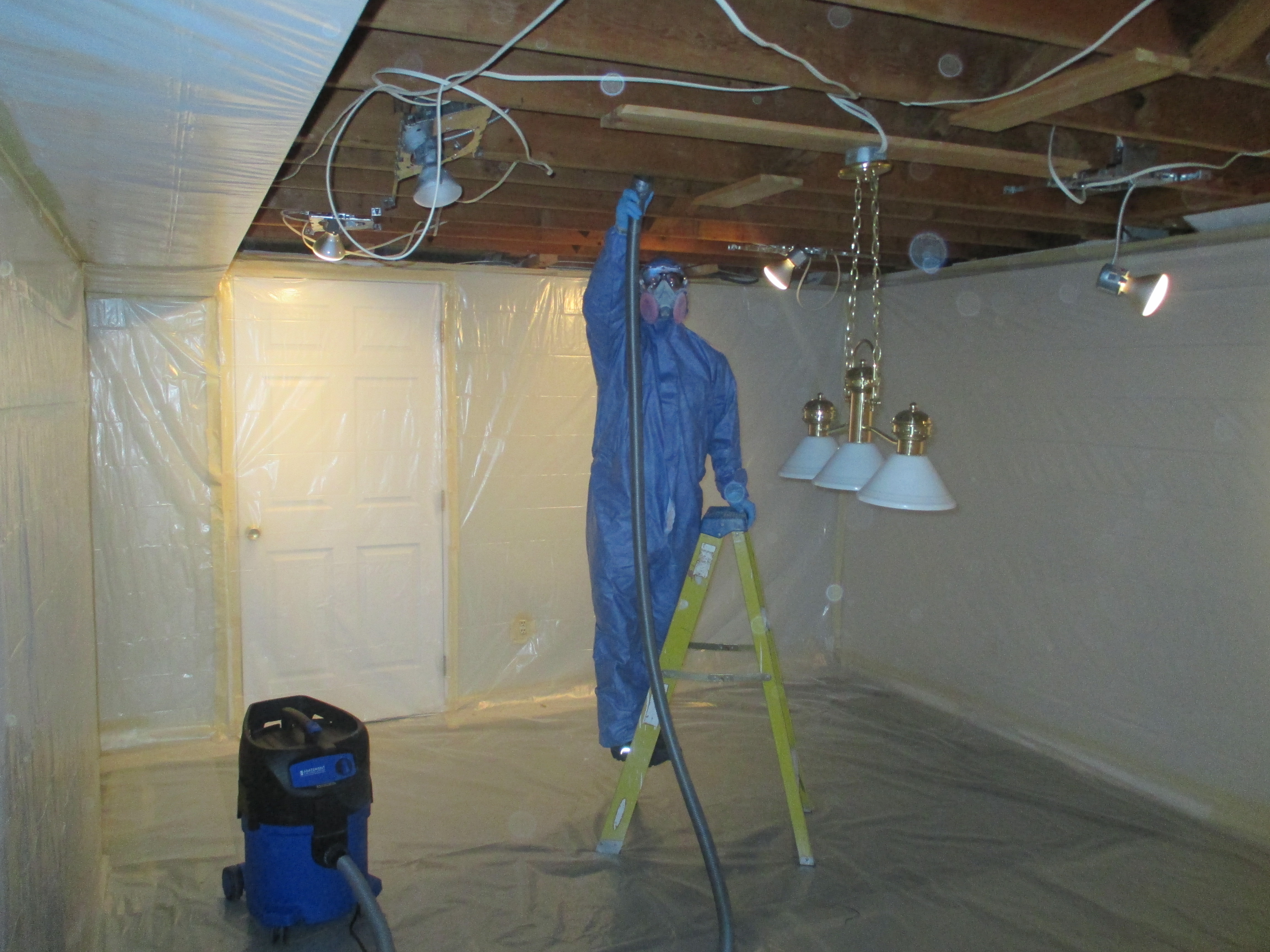
This photo shows the same basement in the process of getting HEPA vacuumed. HEPA, which stands for High Efficiency Particulate Air, is a type of air filter that the EPA and the United States Department of Energy require as a standard for Lead and Mold Remediation projects. A HEPA air filter must remove 99.97% of all particles greater than 0.3 microns from the air that passes through the canister or system itself. The use of HEPA filters is beneficial for asthma and allergy sufferers, because the filter traps fine particles such as pollen, spores and dust mite feces, which trigger allergy and asthma symptoms. But for a vacuum cleaner to be effective, that cleaner must be a True HEPA system. The main difference between a vacuum cleaner with just a HEPA filter and a True HEPA system, is that all of the air passing through the cabin of the system itself will pass through the HEPA filter, and the unit will not have cabin leaks. This is a vital step in the remediation process which removes loose particulate prior to any spray being applied to the surface and once again, limits cross contamination.


